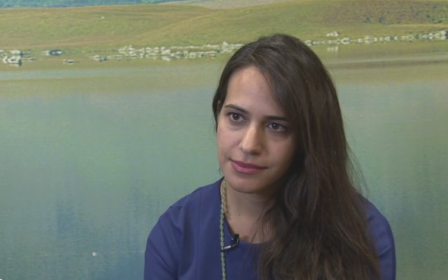Driving and attending football games: a challenge to Saudi's status quo

A Saudi woman disguised as a man was arrested on Friday, 12 December while attending a football game at the al-Jawhara Stadium in Jeddah.
Police spokesperson Atti AL-Qureishi told state-sponsored media website Twasal that security saw right through her “deliberately disguised” male attire. The woman, whose name has not been disclosed to the public, was wearing trousers, a long-sleeved top, a hat and sunglasses, and was subsequently questioned by the police.
The Saudi news website Okaz reported on Monday that the woman claimed she did not know she was not allowed to attend games. She reportedly bought her ticket online without facing any trouble. Despite no charges levelled at her, she is being held in at a correctional girls’ facility in the western province of Mecca.
The football game was between Jeddah’s al-Ittihad and Riyadh’s al-Shabab team. Al-Shabab lost 1-0. The woman was sitting alone in the stands, wearing a black and white scarf around her neck.
Female presence at sporting events in Saudi Arabia is uncommon, if not unheard of. The kingdom imposes a strict gender segregation policy, and women are forbidden from entering stadium grounds. The government has pledged to designate seats for families in the future, although currently there is no allocated space for women to attend. For foreign teams who played in Saudi Arabia, special permissions were required in order to permit their female supporters to watch their matches.
For the first time in any major international sporting event, the kingdom allowed Saudi female ere to participate in the London 2012 Olympic Games.
Saudi Arabia is the only country in the world that does not allow women to drive cars. On November 30, two women were arrested and have since had their detention renewed for almost a month without any charges brought against them. 25 year old Loujain Hathloul drove up to the UAE-Saudi border in her car, live-tweeting her experience. Another women, journalist Maysaa’ al-Amoudi drove from Dubai to the border to support Loujain, with no intention of crossing the border.
The Interior Ministry has not commented on the case.
Recently, the appearance of a Saudi cleric’s wife on television who was not wearing the face veil caused a commotion in what was perceived as an open challenge to the strict tradition to the ultra-conservative Saudi society.
Jawaher bint Ali spoke on a program of the Saudi-owned MCB channel alongside her husband Sheikh Ahmed al-Ghamedi wearing light makeup, nail polish, and the abaya- the traditional black cloak.
Ghamedi has openly challenged the tradition that imposes the niqab, or face veil on women, telling the host of the program Badria al-Bishr, “The Prophet did not order women to cover their faces.”
Wearing makeup is also permissible, he added.
Saudi women are required to cover themselves from head to toe when outside the home, and still need permission from a male guardian to work and marry.
The restriction of women in the desert kingdom is rooted in tradition and the ban on women driving for example is not written down in legislative form.
Middle East Eye propose une couverture et une analyse indépendantes et incomparables du Moyen-Orient, de l’Afrique du Nord et d’autres régions du monde. Pour en savoir plus sur la reprise de ce contenu et les frais qui s’appliquent, veuillez remplir ce formulaire [en anglais]. Pour en savoir plus sur MEE, cliquez ici [en anglais].




